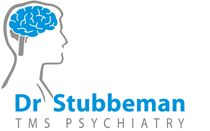
Biological Markers in Noninvasive Brain Stimulation Trials in Major Depressive Disorder: A Systematic Review
Fidalgo TM, Morales-Quezada JL, Muzy GS, Chiavetta NM, Mendonca ME, Santana MV, Goncalves OF, Brunoni AR, Fregni F. | July 10, 2013
Copyright © 2013
Read The Full Article Here
OBJECTIVES:
The therapeutic effects of transcranial magnetic stimulation (TMS) and transcranial direct current stimulation in patients with major depression have shown promising results; however, there is a lack of mechanistic studies using biological markers (BMs) as an outcome. Therefore, our aim was to review noninvasive brain stimulation trials in depression using BMs.
METHODS:
The following databases were used for our systematic review: MEDLINE, Web of Science, Cochrane, and SCIELO. We examined articles published before November 2012 that used TMS and transcranial direct current stimulation as an intervention for depression and had BM as an outcome measure. The search was limited to human studies written in English.
RESULTS:
Of 1234 potential articles, 52 articles were included. Only studies using TMS were found. Biological markers included immune and endocrine serum markers, neuroimaging techniques, and electrophysiological outcomes. In 12 articles (21.4%), end point BM measurements were not significantly associated with clinical outcomes. All studies reached significant results in the main clinical rating scales. Biological marker outcomes were used as predictors of response, to understand mechanisms of TMS, and as a surrogate of safety.
CONCLUSIONS:
Functional magnetic resonance imaging, single-photon emission computed tomography, positron emission tomography, magnetic resonance spectroscopy, cortical excitability, and brain-derived neurotrophic factor consistently showed positive results. Brain-derived neurotrophic factor was the best predictor of patients’ likeliness to respond. These initial results are promising; however, all studies investigating BMs are small, used heterogeneous samples, and did not take into account confounders such as age, sex, or family history. Based on our findings, we recommend further studies to validate BMs in noninvasive brain stimulation trials in MDD.
